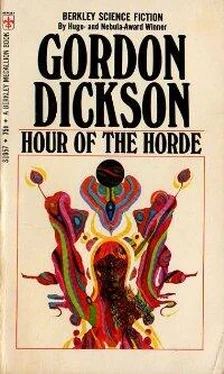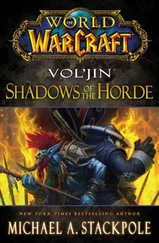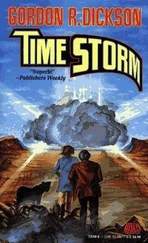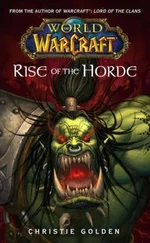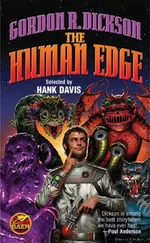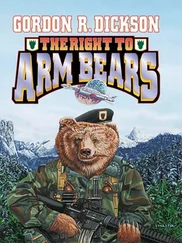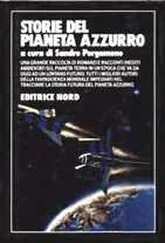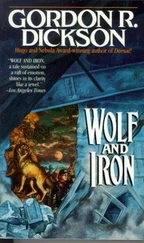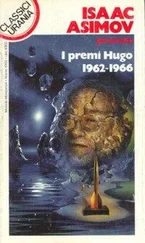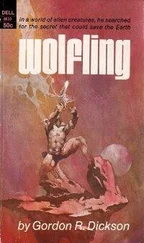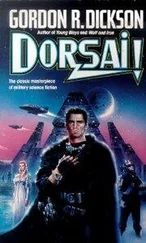Gordon Dickson - Hour of the Horde
Здесь есть возможность читать онлайн «Gordon Dickson - Hour of the Horde» весь текст электронной книги совершенно бесплатно (целиком полную версию без сокращений). В некоторых случаях можно слушать аудио, скачать через торрент в формате fb2 и присутствует краткое содержание. Год выпуска: 1971, ISBN: 1971, Издательство: Berkley Medallion, Жанр: Фантастика и фэнтези, на английском языке. Описание произведения, (предисловие) а так же отзывы посетителей доступны на портале библиотеки ЛибКат.
- Название:Hour of the Horde
- Автор:
- Издательство:Berkley Medallion
- Жанр:
- Год:1971
- ISBN:0-425-01957-8
- Рейтинг книги:4 / 5. Голосов: 1
-
Избранное:Добавить в избранное
- Отзывы:
-
Ваша оценка:
- 80
- 1
- 2
- 3
- 4
- 5
Hour of the Horde: краткое содержание, описание и аннотация
Предлагаем к чтению аннотацию, описание, краткое содержание или предисловие (зависит от того, что написал сам автор книги «Hour of the Horde»). Если вы не нашли необходимую информацию о книге — напишите в комментариях, мы постараемся отыскать её.
Hour of the Horde — читать онлайн бесплатно полную книгу (весь текст) целиком
Ниже представлен текст книги, разбитый по страницам. Система сохранения места последней прочитанной страницы, позволяет с удобством читать онлайн бесплатно книгу «Hour of the Horde», без необходимости каждый раз заново искать на чём Вы остановились. Поставьте закладку, и сможете в любой момент перейти на страницу, на которой закончили чтение.
Интервал:
Закладка:
Hour of the Horde
by Gordon R. Dickson
1
It had happened again. That primitive, unconquerable power in him that he could not seem to deny had reached out once more, savagely, down the muscles of his good arm and hand, to take over his painting.
Exhausted, Miles Vander threw the number four brush he held, now bloodily tipped with alizarine red, back into the pint fruit jar of muddy turpentine holding the other long, yellow-handled brushes. A feeling of dull exhaustion and frustration dropped on him like the doubled folds of some heavy blanket.
All at once he was aware again of his own starved-looking body, his bent shoulders, his uselessly hanging left arm that polio had crippled six years ago. The paralyzed hand was now tucked into his left pants’ pocket, out of sight, and the loose sleeve of his white shirt, billowing about the wasted arm in the late sunlight of the warm spring afternoon, disguised for the moment its unnatural thinness. But he was suddenly, grimly, once more aware of it just the same.
For a few hours, caught up in his painting, he had forgotten both his crippling and the stubborn artistic search he had never stopped these last five years. Now emptied and worn-out, he stood with the aftertaste of one more failure, staring at his canvas, as the freshening breeze of the late afternoon blew the white shirt coldly about him, molding it to his cooling body.
The painting showed the scene before him—only, it did not. He stood on the parkway grass above the west bluff over the Mississippi River. Rippleless below him, between high rock walls narrowly footed with green park lawn, the three-hundred-yard width of the upper river flowed darkly blue, with picture-postcard calmness, beneath the white concrete of a freeway bridge bearing a glassed-in overhead walkway for students moving between the east and west campuses of the university.
These things made up the landscape he had been painting for three and a half hours. And he had set them all down on canvas—the tall gray-brown river bluffs, the grass-covered flats at the foot of the bluffs, even the white-paddle-wheeled steamboat that was the university’s theater-on-the-river moored below the bridge. He gazed at them now, and at the large, heavily leaved old elm trees, the reddish-brown brick of the student union and the university hospital on top of the far bluff, and the blue, near-cloudless sky above them all.
These things lay, as they had lain all through the hours of his painting, bathed in the gentle sunlight of late May—making a warm, even comforting, scene. But this was not the way his brushes had reproduced them on canvas.
On the now wetly gleaming, color-laden three-by-four-foot square of cloth he had painted not what he faced, but that old savage animal instinct of man to which he could not seem to close his eyes—ever. Into the soft, living greens and blues and browns of the scene across the river had crept the icy bleakness of oil-based ultramarine blue hardened with gray. Into the soft yellow sunlight had come the smouldering fire of alizarine red, raising a sullen reddishness like the color of spilled blood.
The resulting painting showed the works of man, by which man was himself to be judged, grayed and brooding, stripped down, and hardened and stained with the bloody marks of savage guilts and primitive failures.
Miles felt exhausted, weak—even a little dizzy. He had emptied himself once more of his inner creative energy. But once more he had made—not the image of the world he wished to show, but only that image’s other face; like the other side of a coin, its devil face. Wearily he began cleaning his brushes and packing his paints for the return to his room.
Midway across the glassed-in walkway above the freeway bridge he stopped to rest for a minute, propping his now-covered canvas and heavy paint box upon the railing that protected the glass side of the walkway. While he caught his breath, he stared down once more at the scene of his painting.
Back the way he had come was the top of the bluff on which he had set up his easel, and facing him now was the bluff’s rugged, near-vertical face of gray limestone rock, roughened, cracked, and gullied by weather, standing above the lower strip of parkway greensward at its foot. As always, the sight of that bluff-face pumped new strength and purpose into him. What he had done once, he could do again. A little warmth woke in him again.
He had been defeated once more this afternoon, but not conquered, after all. Already, drawing strength from the sight of the gray-brown cliff face, the thoughts began to kindle of the next time he would put brush to canvas. There was still time for him to succeed. After all, if he was a failure, at least he was a failure, so far, only in his own eyes.
His painting, even as it was, had won him the unusual attention of his instructors at the university school of art. It had also won him, now that he was graduating, a grant which would let him spend the next two years in Europe, moving about and painting as he liked. Then free at last from academic distractions, painting, painting, and continually painting, he would finally win out over that savage, primitive bleakness of viewpoint which seemed determined to express itself in everything he did.
The slight dizziness from the long afternoon’s effort made him giddy again for a moment. He leaned against the railing. But then he stiffened.
The day had darkened. He looked up swiftly at the sun.
It was as if a heavy orange filter had been drawn across its surface. Rolling, enormous and sullen, it burned with a flaming redness just above the western horizon, so dimmed that he could stare directly into it without squinting. Moreover, as he looked down again, unbelieving, he saw the landscape had also changed. It was coated and darkened and shadowed, now, by the all-pervading redness of the sunlight. The color of alizarine red, which was the shade of his own inner, primitive fury, seemed to have escaped from his painting to stain the real landscape now—all earth and sky and water—with the angry color of spilled blood.
2
Miles stood motionless.
A giant’s hand seemed to close powerfully about his chest, squeezing the breath out of him. Not breathing, he stared at the changed sun and the red-washed landscape, and an old, old fear dating back to the polio attack—fear of his own traitorous body’s finding some way to jail him a second time, before his work could be accomplished—woke inside him.
Grimly he forced himself to breathe and move. He leaned his upper thighs against the heavy shapes of his paint box and cloth-covered painting, pressing them hard against the railing to keep from falling. He rubbed his eyes viciously with the fingers of his good hand and for a painful moment blinked through watery tears at blurred surroundings. But when his gaze cleared again, the redness of sun and land was unchanged, and the fear began to grow into unreasoning anger, like a bubble of fire expanding under his breastbone.
His doctor at the university hospital had told him last month that he was working too hard. His landlady and even Marie Bourtel, who loved him and understood him better than anyone else, had pleaded with him to slow down. So, to be sensible, he had forced himself to get at least six hours’ sleep a night these last two weeks—and still this false and untrustworthy body had failed him, after all.
With brutal fingers he rubbed his eyes once more. But the color of light and sun would not change. Furiously, helplessly, he looked around the walkway for a phone booth.
Probably, he thought, he should stop using his eyes immediately, so that they would not get any worse. He would phone his doctor…
But the walkway bookstore, holding the only phone in the long passageway, was locked up behind glass doors because it was Sunday. Maybe he could get somebody to help him…
Читать дальшеИнтервал:
Закладка:
Похожие книги на «Hour of the Horde»
Представляем Вашему вниманию похожие книги на «Hour of the Horde» списком для выбора. Мы отобрали схожую по названию и смыслу литературу в надежде предоставить читателям больше вариантов отыскать новые, интересные, ещё непрочитанные произведения.
Обсуждение, отзывы о книге «Hour of the Horde» и просто собственные мнения читателей. Оставьте ваши комментарии, напишите, что Вы думаете о произведении, его смысле или главных героях. Укажите что конкретно понравилось, а что нет, и почему Вы так считаете.
